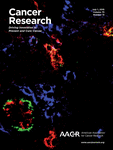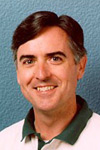
A researcher who confessed to spiking rabbit blood samples to make the results of an HIV vaccine experiment look better has been sentenced to 57 months of prison time, according to The Des Moines Register.
Dong-Pyou Han has also been ordered to repay more than $7 million to the U.S. National Institutes of Health, and will have three years of supervised release following his prison term.
In December, 2013, the U.S. Office of Research Integrity announced that Han, formerly at Iowa State University (ISU), had faked his results to make an HIV vaccine look more powerful. The faulty data made their way into seven national and international symposia between 2010 and 2012 (resulting in a retracted poster in 2014), along with three grant applications and multiple progress reports. Han agreed to a three-year research ban, and resigned from ISU in October the following year.
The NIH never sent the final $1.38 million grant payment of more than $10 million awarded to Han’s boss, Michael Cho, and ISU returned nearly $500,000 it had received for Han’s salary and other costs.
However, Continue reading AIDS vaccine fraudster sentenced to nearly 5 years in prison and to pay back $7 million
 In yet more evidence that retracted studies continue to accrue citations, a new paper has shown that nearly half of anesthesiologist Scott Reuben’s papers have been cited five years after being retracted, and only one-fourth of citations correctly note the retraction.
In yet more evidence that retracted studies continue to accrue citations, a new paper has shown that nearly half of anesthesiologist Scott Reuben’s papers have been cited five years after being retracted, and only one-fourth of citations correctly note the retraction.

 Another domino has fallen in a
Another domino has fallen in a 

